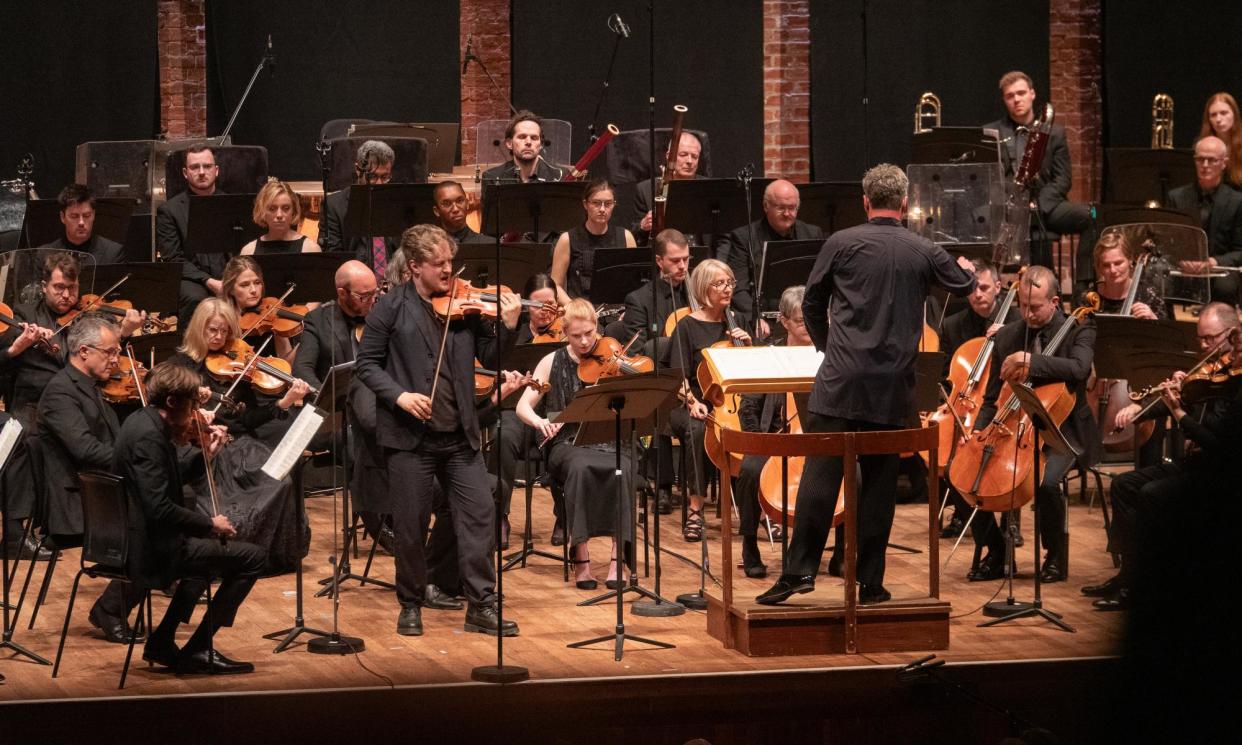BBCSSO/Wigglesworth/Pioro/Gerhardt review – consummate artistry and a broken string

As the Aldeburgh festival celebrates its 75th year, its programming continues to invite curiosity and challenge assumptions in the best possible way.
Violinist Daniel Pioro, one of this year’s artists-in-residence, seems by nature to be an explorer, his imagination unconfined by boundaries. In his concert with the BBC Scottish Symphony Orchestra under the baton of Ryan Wigglesworth, Pioro’s approach to the Britten Violin Concerto was one of magnetic intensity. Music whose soul-searching and questioning betrays all the anguish of its 25-year-old composer – a conscientious objector exiled from Britain and facing the likelihood of war in Europe – carried a fresh authenticity. In his performance, the sense of living-in-the-moment risk-taking was always implicit, Pioro connecting anew with the composer and with his audience. Wigglesworth further ensured that the wonderful intricacies of the third movement Passacaglia – Britten’s first foray into the form that would become a signature – were tightly interwoven with Pioro, both conductor and violinist realising the aching sadness and the absence of any final resolution with the utmost reverence. After a long silence came the tumultuous reception but, as though still communing with Britten, Pioro looked almost dazed before finally relaxing into a smile.
Related: BBCSSO/Wigglesworth/Pioro/Gerhardt review – consummate artistry and a broken string
In the second of the BBCSSO’s concerts, Alban Gerhardt, fellow artist-in-residence, was the soloist in the cello concerto written for him by Unsuk Chin, this year’s featured composer together with Judith Weir. Gerhardt’s artistry, his virtuosity in the frenetically skittering passagework, the ability to make his cello sing even in its very highest register – serene and lyrical in the third movement by contrast with the more confrontational feel of soloist v orchestra elsewhere – made this another compelling experience. But then came the heart-and-performance-stopping moment when a string broke. Gerhardt kept his cool and, in a matter of seconds, had borrowed the principal cellist’s instrument and continued, unassailable to the concerto’s extraordinary end, where the sound somehow dissipates into the air.
Consummate artistry indeed and well supported by Wigglesworth who, two years into his tenure as their chief conductor and with ever increasing authority and dignity, is achieving remarkable things with the BBCSSO. This was resoundingly proved in the two massive symphonies on successive nights: Mahler’s Fourth notable for its grace and a lightness of spirit – soprano Elizabeth Watts in the finale – while Bruckner’s Seventh had a natural grandeur, resplendent in the Maltings acoustic, but never grandiloquent. That same care had been lavished on Weir’s tone-poem Forest, a world so imbued with an element of fantasy as to make it a fine companion to Mahler.

 Yahoo News
Yahoo News 
